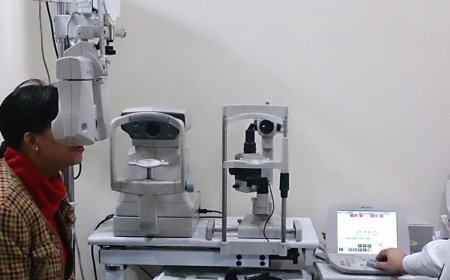5 Myths About Jobs for Autistic People Debunked

Introduction
In the past few years, there has been a growing recognition of the value that neurodiverse individuals bring to the workplace. However, despite this progress, several myths about jobs for autistic people persist. These myths can be barriers to employment, perpetuating stereotypes and preventing talented individuals from achieving their full potential. This blog will debunk five common myths about jobs for autistic people, shedding light on the reality and highlighting the opportunities available.
Myth 1: Autistic People Are Not Interested in Working
One of the most pervasive myths is that autistic people are not interested in working or contributing to society. This misconception often stems from a misunderstanding of autism and the diverse ways it manifests in individuals. The reality is that many autistic individuals are eager to work and contribute meaningfully to their communities.
Autistic people possess a wide range of skills, talents, and interests, just like neurotypical individuals. While some may have specific challenges that need to be addressed, this does not diminish their desire to work. With appropriate support and accommodations, autistic individuals can thrive in various roles, from technical positions in IT and engineering to creative roles in art and design.
Myth 2: Autistic People Cannot Handle Stressful Work Environments
Another common myth is that autistic people cannot handle stressful work environments. While it is true that some autistic individuals may have heightened sensitivity to certain stimuli, this does not mean they cannot manage stress or work in high-pressure environments.
The key to supporting autistic employees is understanding their individual needs and providing appropriate accommodations. For instance, allowing for flexible work hours, creating a sensory-friendly workspace, and offering clear communication can make a significant difference. Additionally, many autistic individuals excel in roles that require attention to detail, focus, and problem-solving—skills that are highly valued in various industries.
Myth 3: Autistic People Lack Social Skills Needed for the Workplace
The myth that autistic people lack the social skills needed for the workplace is another barrier that needs to be addressed. While it is true that social interactions can be challenging for some autistic individuals, it is important to recognize that social skills can be learned and developed over time.
Moreover, not all jobs require the same level of social interaction. Many roles prioritize technical skills, creativity, and analytical thinking over social prowess. Employers who value diversity and inclusion understand that different perspectives and approaches can enhance team dynamics and drive innovation. By providing social skills training and fostering an inclusive workplace culture, employers can help autistic employees succeed and feel valued.
Myth 4: Jobs for Autistic People Are Limited to Certain Fields
A prevalent myth is that jobs for autistic people are limited to certain fields, such as IT or data entry. While it is true that some autistic individuals may excel in these areas due to their attention to detail and analytical abilities, it is important to recognize that autistic people have diverse interests and talents.
Autistic individuals can be found in various fields, including healthcare, education, the arts, and more. For example, Temple Grandin, a renowned autistic advocate, has made significant contributions to animal science and humane livestock handling practices. By focusing on an individual's strengths and providing opportunities for skill development, employers can help autistic employees excel in a wide range of careers.
Myth 5: Accommodating Autistic Employees Is Too Difficult and Expensive
Finally, a common myth is that accommodating autistic employees is too difficult and expensive for employers. This misconception can discourage employers from hiring autistic individuals, depriving them of valuable talent.
In reality, many accommodations for autistic employees are simple and cost-effective. For example, providing noise-canceling headphones, allowing for flexible work hours, or offering clear written instructions can make a significant difference without incurring substantial costs. Additionally, organizations that prioritize diversity and inclusion often find that the benefits far outweigh the costs. A diverse workforce can lead to increased creativity, improved problem-solving, and a more inclusive company culture.
Embracing the Truth About Jobs for Autistic People
Debunking these myths is essential for creating a more inclusive and equitable job market. By recognizing the strengths and potential of autistic individuals, employers can tap into a valuable talent pool and foster a more diverse and innovative workplace.
It is important for employers, educators, and society as a whole to challenge these misconceptions and advocate for greater inclusion. Providing support, accommodations, and opportunities for skill development can help autistic individuals succeed in their chosen careers and contribute meaningfully to their communities.
Supporting Autistic Individuals in the Workplace
Creating an inclusive workplace for autistic individuals involves several key steps:
Education and Awareness: Employers and colleagues should be educated about autism and the diverse ways it can manifest. This can help reduce stigma and foster a more supportive work environment.
Individualized Accommodations: Understanding the specific needs of each autistic employee and providing tailored accommodations is crucial. This may include flexible work hours, sensory-friendly workspaces, and clear communication methods.
Mentorship and Support: Offering mentorship and support can help autistic employees navigate the workplace and develop their skills. This can include pairing them with experienced colleagues who can provide guidance and support.
Promoting Neurodiversity: Celebrating neurodiversity and recognizing the unique strengths that autistic individuals bring to the workplace can help create a more inclusive and innovative work culture.
Real-Life Success Stories
There are numerous success stories of autistic individuals who have excelled in their careers and made significant contributions to their fields. For example:
Temple Grandin: Temple Grandin is a well-known autistic advocate and animal science professor. Her work in designing humane livestock handling facilities has revolutionized the industry and earned her widespread recognition.
Satoshi Tajiri: Satoshi Tajiri, the creator of Pokémon, is another example of an autistic individual who has achieved remarkable success. His unique perspective and creativity have had a lasting impact on the gaming industry.
Greta Thunberg: Greta Thunberg, the climate activist, has used her platform to raise awareness about climate change and advocate for environmental action. Her dedication and determination have inspired millions around the world.
Conclusion
Debunking the myths about jobs for autistic people is crucial for creating a more inclusive and equitable job market. By recognizing the strengths and potential of autistic individuals, employers can tap into a valuable talent pool and foster a more diverse and innovative workplace.
It is important to challenge these misconceptions and advocate for greater inclusion. Providing support, accommodations, and opportunities for skill development can help autistic individuals succeed in their chosen careers and contribute meaningfully to their communities. By embracing neurodiversity and promoting an inclusive workplace culture, we can create a brighter future for everyone.
What's Your Reaction?
















![Noots Focus Reviews [Truth Exposed 2025]!](https://news.bangboxonline.com/uploads/images/202501/image_430x256_678e3b94881a1.jpg)
![Vivalis Male Enhancement: The Must-Know Ingredients [2025 Update]](https://news.bangboxonline.com/uploads/images/202501/image_430x256_678e3b54e396c.jpg)









